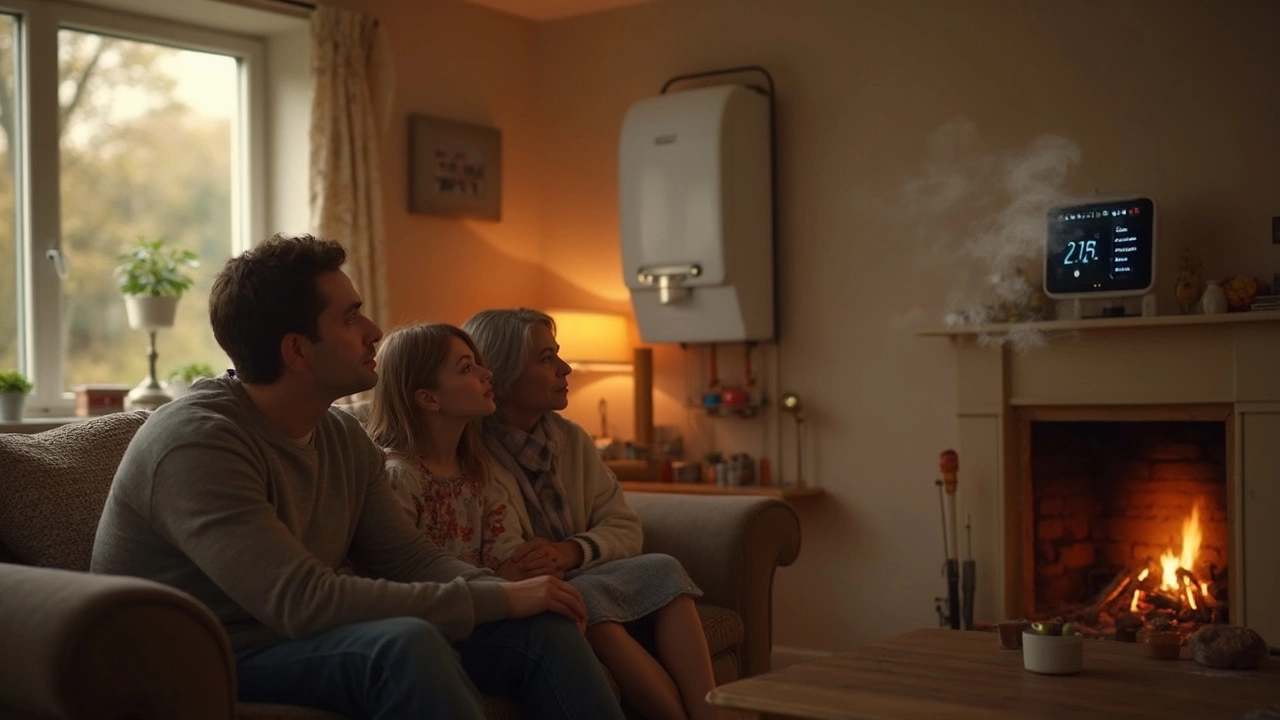Boiler Warning Signs You Should Never Ignore
Ever notice your heating acting up and think it’ll fix itself? Most of the time it won’t. Small clues are trying to tell you the boiler is in trouble. Catching these signs early can keep you warm and stop a pricey repair bill.
Common Symptoms That Mean Trouble
Strange noises – clanking, whistling, or rattling sounds usually mean air, sludge, or a loose part inside the system. If the boiler sounds like a drum solo, call a pro.
Cold spots or inconsistent heat – one room stays chilly while others are toasty? Your boiler may be struggling to maintain pressure or the thermostat could be failing.
Leaks – any water pooling around the boiler, on the floor, or dripping from pipes is a red flag. Even a tiny drip can become a flood if ignored.
Frequent on/off cycling – if the boiler turns on, shuts off, then restarts quickly, it’s likely overheating or the flame sensor is dirty.
Warning lights or error codes – most modern boilers flash a light or display a code when something’s wrong. Grab the manual or look up the code online, but don’t try to fix it yourself unless you’re qualified.
What to Do When You See a Warning Sign
First, turn off the boiler and let it cool. Safety comes first – you don’t want to touch hot components or risk a gas leak.
If you spot a leak, locate the source. A small pipe joint might just need tightening, but a crack in the heat exchanger needs a professional.
For noisy operation, bleed the radiators to release trapped air. That often quiets things down and improves heat distribution.
When you get an error code, write it down and search the manufacturer’s website. Many codes point to specific issues, like a faulty pump or low water pressure.
If the boiler keeps cycling, check the pressure gauge. Ideal pressure is usually between 1 and 1.5 bar when the system is cold. Adjust if it’s low, but if you’re unsure, call an engineer.
Never ignore a persistent smell of gas. It can be faint, but it’s dangerous. Evacuate the house, avoid using switches, and call the gas emergency line right away.
Regular maintenance is the best defense. A yearly service can catch wear and tear before it turns into a breakdown. The technician will clean the heat exchanger, check the burner, and test safety controls.
Even if you’re comfortable with DIY, remember that boilers involve gas and electricity. A small mistake can be costly or unsafe. When in doubt, book a qualified boiler repair service.
Bottom line: your boiler talks to you through noises, leaks, and error lights. Listen, act fast, and keep a professional on speed‑dial. That way you stay warm, safe, and your wallet stays happy.
When Should I Worry About My Boiler? Spotting Trouble Early
0 Comments
Not sure when to be concerned about your boiler? This article breaks down the red flags you can’t ignore, from weird noises to fluctuating heat. Learn when a quick DIY check is enough and when you need a pro—plus, useful tips to keep your boiler in better shape and avoid surprise breakdowns. Whether your heating is acting up or you just want peace of mind, you’ll get practical advice to stay one step ahead. Don’t let a small problem snowball into a costly emergency.
Read More